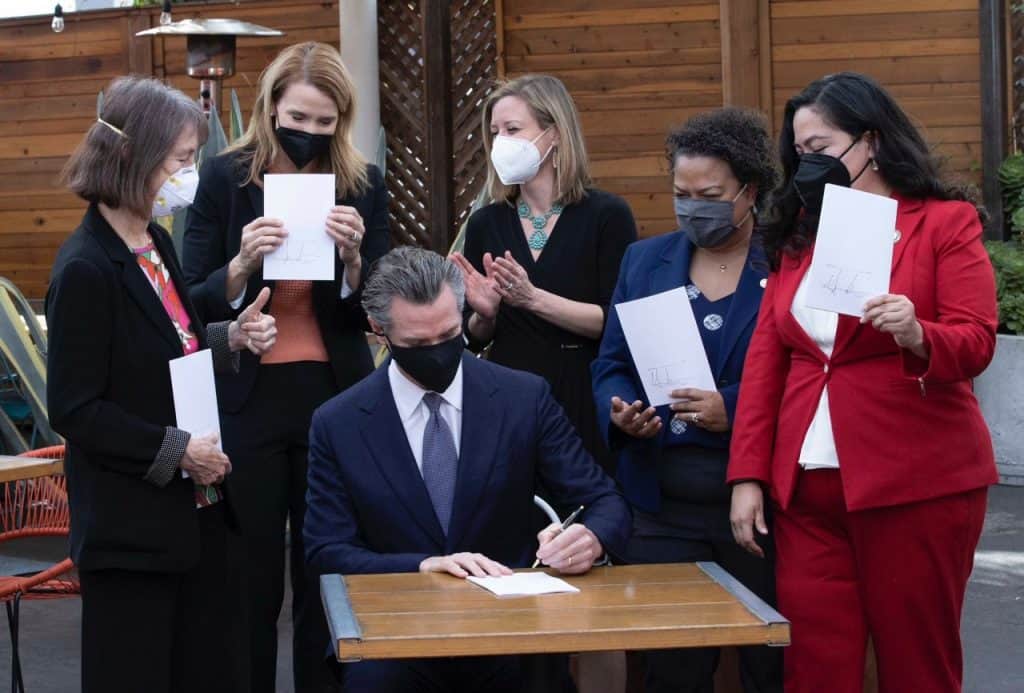
Tala Doumani is a student at Harvard Law School.
Yesterday, California Governor Gavin Newsom signed into law a new COVID-19 Supplemental Paid Sick Leave plan. Under the new plan, employees are eligible for up to 80 hours of paid leave for COVID-19 related absences. The statute, which was codified in the California Labor Code, applies to employers with 26 or more employees. The scope of what qualifies for a COVID-19 related absence is broadly construed – including use for employees who have been advised to quarantine, those caring for COVID-19 positive family members, and attending vaccination appointments. In announcing the law, Newsom’s administration stated that “[p]aid sick leave is key to ensuring workers don’t have to make the impossible choice between going to work sick or losing wages needed to pay rent and keep food on the table.” Unlike in previous federal and state paid sick leave programs, Californian employers are responsible for the costs of the additional time off (with the opportunity for government support down the road). The law retroactively applies to January 1, 2022, and is set to expire on September 30, 2022.






Daily News & Commentary
Start your day with our roundup of the latest labor developments. See all
February 10
San Francisco teachers walk out; NLRB reverses course on SpaceX; NYC nurses secure tentative agreements.
February 9
FTC argues DEI is anticompetitive collusion, Supreme Court may decide scope of exception to forced arbitration, NJ pauses ABC test rule.
February 8
The Second Circuit rejects a constitutional challenge to the NLRB, pharmacy and lab technicians join a California healthcare strike, and the EEOC defends a single better-paid worker standard in Equal Pay Act suits.
February 6
The California Supreme Court rules on an arbitration agreement, Trump administration announces new rule on civil service protections, and states modify affirmative action requirements
February 5
Minnesota schools and teachers sue to limit ICE presence near schools; labor leaders call on Newsom to protect workers from AI; UAW and Volkswagen reach a tentative agreement.
February 4
Lawsuit challenges Trump Gold Card; insurance coverage of fertility services; moratorium on layoffs for federal workers extended